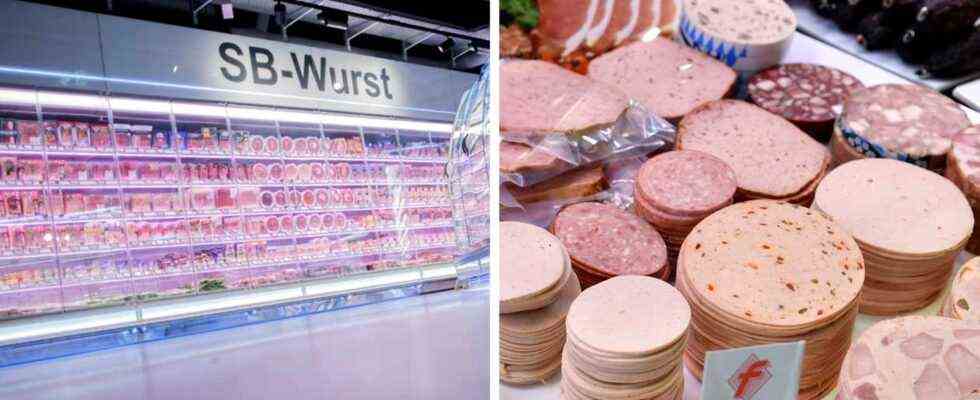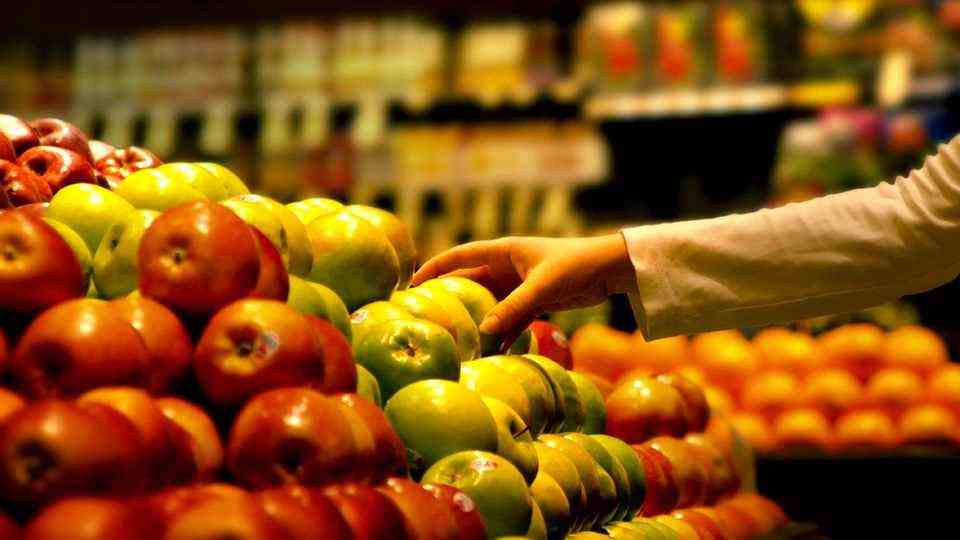Animal welfare in the check
Cooling shelf or fresh food counter: where you can get better cold cuts and meat
Where can you find more animal welfare: Packed in the refrigerated shelf or at the sausage counter?
© Picture Alliance
Packaged sausage and shrink-wrapped ham versus fresh cold cuts and pork fillet: where can customers get more? And where do customers have to shop when they want more animal welfare? The “NDR” did the test.
Schnitzel and steaks, minced meat, roasts and grilled meat – plus appetizingly arranged cold cuts: The fresh food counter in the supermarket gives the impression that these products are of high quality. And this impression also applies to animal welfare. Those who buy fresh meat are also doing something to improve the conditions for keeping the animals. Or?
The “NDR” did the test in its consumer program “Markt” and bought it in various supermarkets. Master butcher Florian Lerch, who works as a consultant for butchers, should take a closer look at the products bought there.
Rewe starts, where the testers bought pork fillet and cold cuts, all from the Wilhelm Brandenburg brand. The big difference is that it is halved, says Lerch. “The advantage of packaged meat is the longer shelf life,” says the expert. If you shop at the fresh food counter, you have to process the products quickly. He lays the two pork fillets, one packaged, the other freshly bought, side by side. The color is actually easy to see. The meat expert explains that the fillet from the fresh food counter is actually very fresh. Both pieces of meat are, however, level 1 meat, i.e. stables. The Lyoner sausage bought at Rewe comes from meat from farming type 2.
Bad labeling of meat and cold cuts
Not surprising for Greenpeace. Customers would demand more, especially at the fresh produce counter: three quarters of supermarket customers (77 percent) expect one representative survey by Kantar At service counters, more meat from species-appropriate animal husbandry than on self-service shelves, according to Greenpeace. The problem is the lack of labeling in the freshness area, criticize the environmental and animal rights activists. Only 22 of the 99 Edeka, Kaufland and Rewe branches visited even labeled products in the service counters with the type of husbandry. And: The worst type of husbandry is better not labeled in the first place. “Most supermarkets still offer meat from animal welfare and environmentally harmful farming methods 1 and 2,” says Christiane Huxdorff, an agricultural expert at Greenpeace.
In fact, the testers found most of the products from the better forms of husbandry, for example in organic quality, in packaged form. At Edeka, testers buy Hack, one from the self-service area and one fresh from the counter. When it comes to consistency, the fresh mince can score. But that also costs: 11.96 euros per kilo. The industrially processed hack, on the other hand, costs only 8.49 euros per kilo. And: The packaged hack has the better keeping class 3. This is “not yet available at the fresh food counter for production reasons,” says Edeka.
Competitors can do this. Kaufland lets you know that the meat of pigs, turkeys and chickens at the service counters has been kept exclusively from type 3 since 2019. But Kaufland cannot score points with packaged meat: the testers found poorer forms of husbandry there. You can buy level 3 roast pork fresh (7.99 euros / kilo), but in the self-service area there is only housing type 2 (6.29 euros / kilo).
Conclusion: The labeling of packaged goods is better. In fact, the testers repeatedly discover identical goods that are sold more cheaply in the self-service area. The dealers justify this with advice and portioning. However, the testers also suspect that an image is also paid for at the fresh food counter. You would look in vain for one thing at many service counters: organic products. Only in a few branches of Edeka and Kaufland do test buyers discover small organic areas at the fresh food counter. Rewe announces that they want to start a national test run in markets with “bio-affine customers”.
The verdict of the testers: The meat on the counter is often fresher and clean cut, but does not keep very long and usually comes from poorer categories. Those who value organic products and better ways of keeping them are currently better off reaching for the self-service shelf.
You can find the NDR contribution in the Media library recall.



